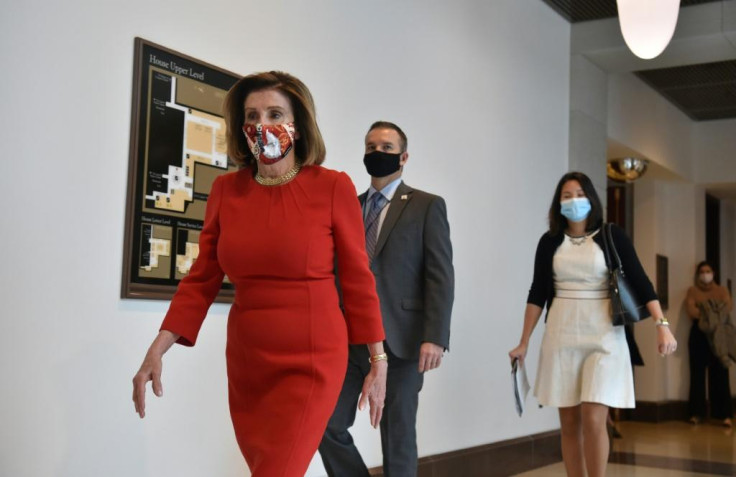Democrats push stimulus and $1,400 checks, with or without Republicans
KEY POINTS
- The proposal has a $15 minimum wage, a third round of $1,400 checks and extensions to federal protections
- Democrats may use a procedural measure meant for budgets to pass the bill with a simple majority
Democratic lawmakers are pushing forward with a stimulus package to deliver $1,400 checks and a $15 minimum wage. With no Republican support, Democrats may disregard President Joe Biden's message of compromise and pass the bills through reconciliation, a procedural measure that would allow passage with a simple majority, The Washington Post noted.
The proposal from Democrats follows the priorities of a recent executive order from Biden, approving a third round of $1,400 checks, raising the minimum wage to $15 and extending protections and federal aid set to expire in March. Stimulus checks of $600 were sent out in early January.
"There's an urgency to moving it forward and [Biden] certainly believes there needs to be progress in the next couple of weeks," Jen Psaki, White House press secretary, said while describing the mid-March unemployment deadline as an "unemployment cliff."
Republicans, now concerned with the budget, have proven largely unwilling to support the initiative.
Democrats can still pass it through reconciliation, a Senate measure intended for budget bills that lowers the bar from 60 votes to 51.

House Budget Committee Chairman John Yarmuth said Monday that the budget bill needed to use reconciliation could arrive "as early as next week."
Sen. Bernie Sanders of Vermont confirmed the Senate was doing the same.
"Did I criticize Republicans for using reconciliation to give tax breaks to billionaires? Yes
— People for Bernie (@People4Bernie) January 24, 2021
If they want to criticize me for helping to feed children who are hungry, or senior citizens who are isolated and alone and don't have enough food, they can criticize me" @BernieSanders pic.twitter.com/zeijb2XUDe
While reconciliation would be used to overcome uniform Republican opposition, the Biden administration did its best to smooth over any ruffled feathers.
"Reconciliation is a means of getting a bill passed. That does not mean, regardless of how the bill is passed, that Democrats and Republicans cannot both vote for it," Psaki said. "The president obviously wants to make this bipartisan, hence he's engaging with members of both parties and he remains committed to that."
Republicans have proven particularly resistant to the increased minimum wage, a measure that might not even be legal in reconciliation, which can only pass elements that directly change the federal budget. Biden may drop that to try and get Republicans on board with a conventional vote.
This article is copyrighted by International Business Times, the business news leader





















